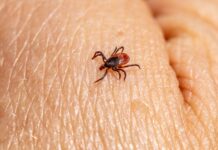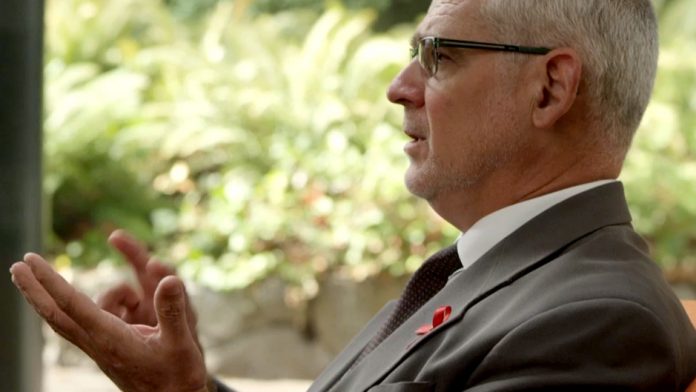Julio Montaner is a Professor of Medicine and Director of the British Columbia Centre for Excellence in HIV/AIDS at the University of British Columbia. We asked everything from why he chose his field of study to what’s on his playlist in hopes of giving you a better understanding of what goes on outside the lab for one of the best minds in Canadian research.
What inspired you to become a researcher?
The inspiration largely came from my family. My mother was a botanist but my father had the largest influence. He was a clinical physician specializing in tuberculosis. Alongside his practice he would do house calls and have patients come to our house, a big no-no today but I found it fascinating. My favourite game was playing doctor – I had “experience” with patients growing up and what it meant to be a doctor. As for HIV, when I entered the profession specializing in respiratory diseases HIV was the newest thing (1981) and so I was put on that. I only intended to stay in Canada for a year but ended up staying permanently. I married a Canadian and she was very persuasive. I love the Canadian health care system where everyone can have access to healthcare with the highest possible standards and I was eager to make a difference not just in medicine but in policy.
What do you like most about being a researcher?
The ability to solve problems. Science in all its forms is fascinating and extremely important, but I personally get enormous satisfaction from solving problems affecting people in the here and now. My work has immediate resonance for people and the sense of urgency associated with it add value to the work. My desire has always been to bring tangible solutions to things that are critical to people’s well being and lives and my work affords me the chance to do that.
What do you envision in the future of your field?
We have to divide the future of the field into several parts – scientifically we are very encouraged by the limited but very steady progress towards both a cure and a vaccine. It might take days, months or years but it is getting there. Aside from that I’m thrilled our own work has led to the development of a strategy that can’t eliminate HIV directly but can eliminate the chance of a pandemic, reducing it to a sporadic and rare infection. With the “treatment as prevention” strategy where we aggressively treat patients early on in the disease we have helped prevent morbidity, mortality and transmission and made BC the only province with a decreasing rate of HIV/AIDS. We now hope that with the 90-90-90 goal from the UN we can make huge strides in treating and ridding the world of the disease.
What advice would you give young researchers?
I think people should pursue their dreams to the very end. Keep focussed, keep it simple, ask simple questions and build on them and most importantly, own your answer. Own your results and take them to decision makers to be understood and incorporated into policy. The days of having great research and just leaving it for anyone to find are gone – we need these things to get noticed. People need to be advocates for their work. All young researchers should remember to remain true to their fundamental core values.
What do you consider your greatest achievement?
My biggest achievement is that I still have a wife and family despite all the work! I hope my legacy will be that we will have found a way to change the way of doing business in healthcare that goes way beyond HIV. Our healthcare system in Canada is fantastic, but has a draconian/Darwinian perversion. We have services that are available to you if you have any ailment imaginable – no questions asked, treatment and accommodation will be provided for. The problem is that the people who most need these services don’t know how to navigate the system, and the system doesn’t come to them. It acts against the best interests of the system for it to be this way, and the way it’s set up promotes access by the elite but the less privileged are left out. Budgetary constraints prevent the adoption of better methods and approaches. We keep on doing things the way we used to and it’s not working. Bring the services to communities in need and spend more money (not less) on the approaches. You’ll save lives and money in both the short and long term. It is my hope that our work in BC on improving access to treatment and the way we go about treatment will lead to a new way of treating all problems in the healthcare system.
What do you read?
About a decade ago my wife said I needed things other than medicine on my bookshelf. So I read fiction largely, which I typically read in the gym, elliptical full speed with my iPod on. I regret to admit that I have a soft spot for medical fiction and science fiction.
What’s on your playlist?
Aside from a couple people I’m very fond of who are Spanish (notably Juan Manuel Serrat) I typically poach my children’s music and quite enjoy what they like listening to, most recently Macklemore and Lewis. When I travel and study I enjoy classical music and Chopin is my favourite.
If you could meet any historical figure who would it be and why?
Very difficult question to answer – knee jerk reaction would be to talk to my dad for a couple hours, relate, discuss the work we did and I’ve done. He passed away a year ago but had dementia long before then – it would be wonderful to have the conversations I missed with him. Historically however I’d say Charles Darwin – I haven’t studied him but he intrigues me greatly.
If you could do any profession other than your own what would it be?
I can’t answer that. I will only say that within the spectrum of medicine I change professions a number of times. Lesson I learned was that you need to follow your passion, focus and take advantage of the opportunities given. If something were to happen that made it impossible to pursue medicine, I would have tried to keep true to my passion – I would need to find something that contributed to social good. Gratefully I never had to consider anything else
What do you like to do for fun?
In 1995 my wife said that my workload was not tenable anymore. My kids were ten and we’d never had a family vacation. I booked one immediately. I’m not going to say everything went perfectly the first time but now it’s a staple of our family to go to the Sunshine Coast every year. I didn’t used to know how to fish and now I’m pretty good. I didn’t know how to prawn but now am pretty good. Biking in the mountains. Outdoors activities.
Want to learn even more about Prof. Montaner? Check out his Orange Chair Interview.






































